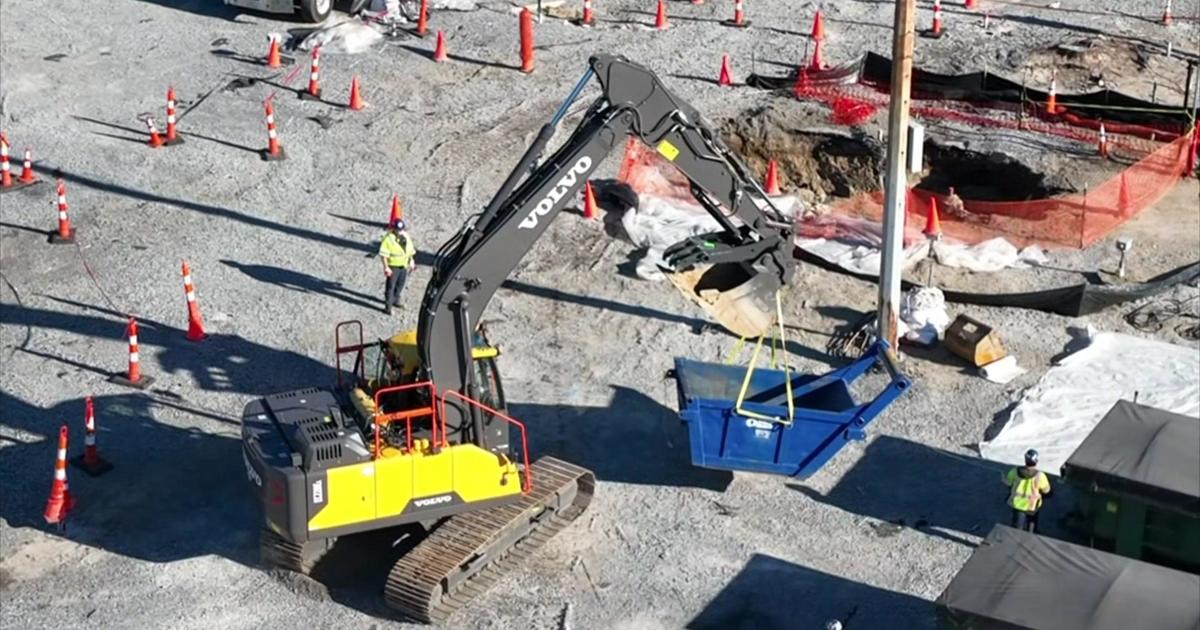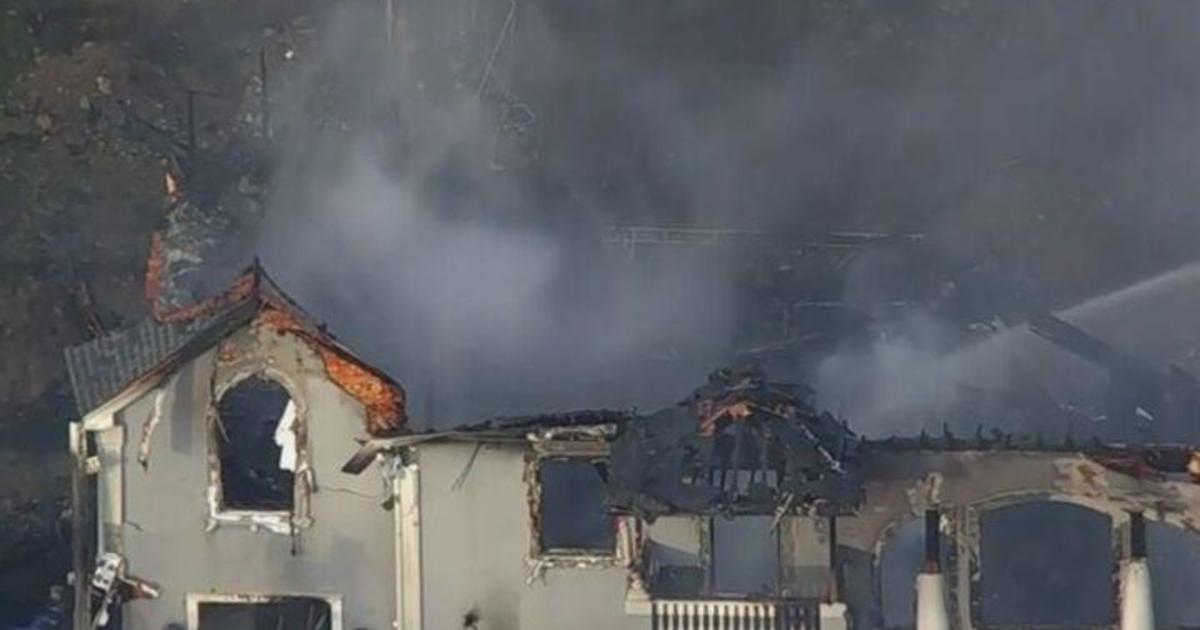Think Safety While Riding Out Blizzard
YONKERS, N.Y. (CBSNewYork) -- The blizzard hitting the Tri-State area poses dangers not only on the roads, but also for your home.
With heavy snow, ice and wind expected, the storm could be a nightmare for homeowners, especially if your roof is flat, CBS2's Emily Smith reported.
"Worst-case scenario, you get a collapsed roof," said Joe Granitto with the roofing company J. Salvatore & Sons. "More commonly, you have so much built-up ice that roof can't drain."
Some homes have heating cables built onto the roof to keep things flowing. That can cost up to $8,000.
It's too late right now to worry about gutter renovations, but there's another option.
"Calcium chloride," Granitto said. "That is the safest way to melt it with minizming damage."
Calcium chloride can be bought at the hardware store. And if sprinkled on drainage areas every few hours, it can help keep ice from blocking gutters.
CHECK: Forecast & Alerts | Traffic & Transit | School Closings & Delays | Flight Status | Cold Weather & Safety Tips | NOAA Weather Briefing
Experts say to only use rock salt on driveways because it can corrode copper gutters or damage stone patios below.
There are things you can do inside your home, too.
Just in case the power goes out, you should turn your refrigerator to the coldest setting. That will help preserve food longer. And make sure the refigerator door is shut tight.
A hot stove or oven can be tempting to use as a heat source. But experts say it's not safe and can produce dangerous levels of carbon monoxide.
Also, try to use flashlights instead of candles because an unattended flame can quickly melt and cause a fire.
And unplug appliances before you go to bed. If the power goes out and then back on, a surge could create a hazard.
The Red Cross is on alert and is urging everyone to do the same and stock up on essentials.
"This is going to be a monster of a storm," said Craig Cooper with the Red Cross.
Meanwhile, the Red Cross recommends that you keep at least three days worth of drinking water on hand for emergencies — about a gallon per person for each day.
You should also stock up on nonperishable food and extra batteries.
Also charge your cellphone in case there's a power outage and get batteries ready for things like flashlights and radios.
If you have a generator, keep it 20 feet from the house and away from windows to prevent carbon monoxide from filling your home, Rockland County Fire Coordinator Gordon Wren.
"In the late '90s, we had a major outage from a massive ice storm in the northern part of New York state and southern Canada and I think 3 million people were without power in below-zero weather. And more people died from carbon monoxide poisoning involving alternative sources of heat than they did from the effects of the storm," Wren told WCBS 880's Sean Adams.
Officials are also advising motorists to keep an emergency kit in their vehicles. It should include flashlights, a shovel, water, food, blankets, a cellphone and charger.
The National Weather Service says if a car gets stuck in the snow, drivers should remain inside.
They are advised to run the engine every 10 minutes to stay warm but to crack open their windows to avoid carbon monoxide exhaust. Also tie a colored cloth to the top to be visible in snowdrifts.
For more information from the Red Cross, click here.



